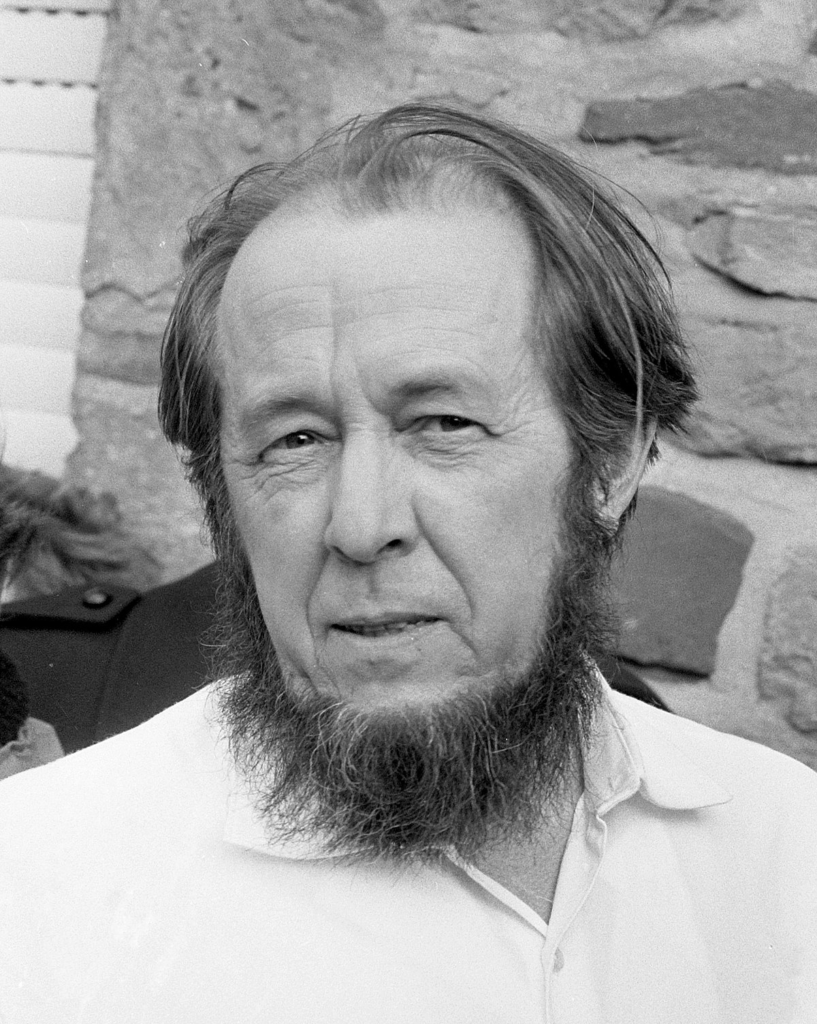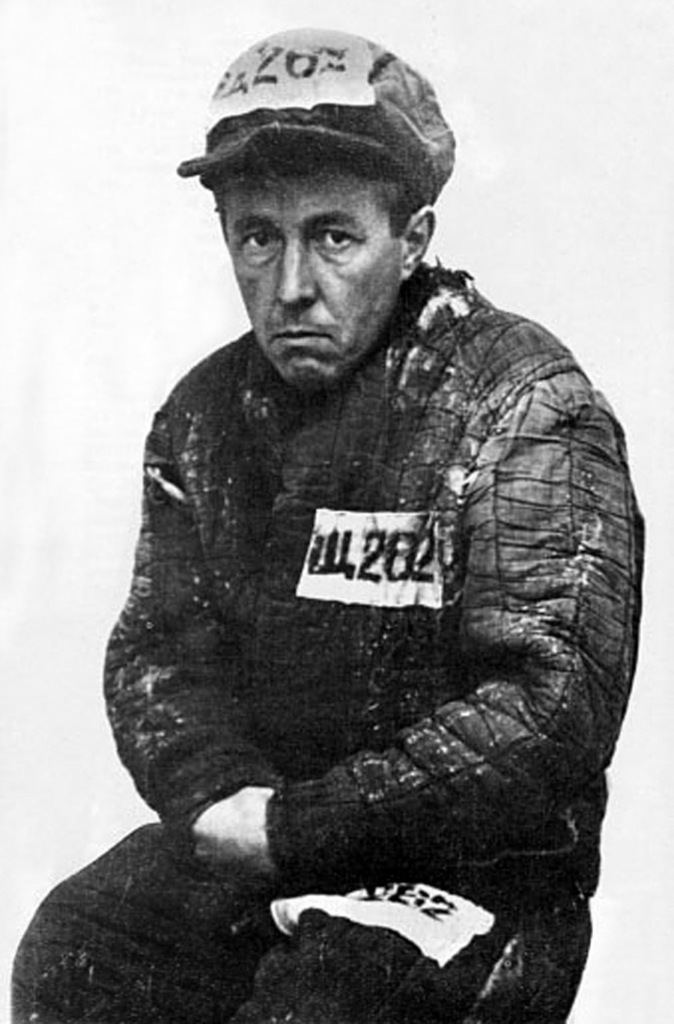
Aleksandr Solzhenitsyn, a towering figure in Russian literature and history, is best known for his profound work, “The Gulag Archipelago.” This monumental book not only exposed the brutal realities of Soviet labor camps but also highlighted the resilience of the human spirit.
To fully appreciate Solzhenitsyn’s contributions, it is essential to delve into his early life, his personal mistakes, the responsibilities he shouldered, and the invaluable lessons he imparted through his writings. Jordan Peterson, a contemporary thinker, has extensively reflected on Solzhenitsyn’s life and struggles, emphasizing the lessons we can learn from his journey.
Early Life: The Foundation of a Revolutionary Mind
Aleksandr Isayevich Solzhenitsyn was born on December 11, 1918, in Kislovodsk, Russia. His early years were marked by the turbulence of post-revolutionary Russia, which profoundly influenced his worldview. Raised by a single mother, Solzhenitsyn developed a deep love for literature and history, showing an early propensity for intellectual pursuits.
Despite his intellectual leanings, Solzhenitsyn chose to study mathematics at Rostov State University, believing that a practical education would provide more security. However, his passion for literature never waned, and he continued to write and explore philosophical questions on the side.
Early Motivations and Allegiance to the Communist Party
During his youth, Solzhenitsyn was a fervent supporter of the Soviet Union and its communist ideology. Like many of his contemporaries, he was drawn to the promises of equality and social justice that the communist party espoused. This allegiance was not merely theoretical; Solzhenitsyn was actively involved in promoting communist ideals, believing that they would lead to a better society.
Mistakes and Imprisonment: A Harsh Awakening

Solzhenitsyn’s life took a dramatic turn during World War II. Serving as an officer in the Red Army, he experienced the horrors of war firsthand. However, it was his outspoken criticism of Joseph Stalin, expressed in private letters, that led to his downfall. In 1945, Solzhenitsyn was arrested for his anti-Soviet sentiments and sentenced to eight years in a labor camp, followed by internal exile.
His imprisonment in the Soviet Gulag system was a transformative experience. The brutality and inhumanity he witnessed fueled his desire to document and expose the truth. Solzhenitsyn realized that his previous naivety and mistakes, particularly his belief in the Soviet regime, had led to his suffering. This period marked the beginning of his journey towards personal responsibility and moral awakening.
Oppression by Both Nazis and Communists
Before his arrest by the Soviets, Solzhenitsyn also experienced oppression under the Nazis. During World War II, he was captured by German forces and briefly imprisoned. This experience, though less documented than his time in the Gulag, added another layer to his understanding of the horrors inflicted by totalitarian regimes. The brutality of both the Nazis and the Communists shaped his views on the dangers of unchecked power and the vulnerability of the individual within such systems.
Jordan Peterson highlights this dual oppression as a significant aspect of Solzhenitsyn’s life, noting how it provided him with a comprehensive understanding of the nature of totalitarian regimes. According to Peterson, Solzhenitsyn’s experiences under both Nazi and Soviet rule underscore the importance of personal responsibility and the power of truth in confronting and overcoming oppression (Aleksandr Solzhenitsyn Center) (YouTube) (UnHerd).
Moving Away from Communism
Solzhenitsyn’s disillusionment with communism grew during his time in the Gulag. The stark contrast between the party’s promises and the grim reality of the labor camps shattered his faith in the ideology. He began to see the Soviet government’s actions as a betrayal of true socialist principles and became a vocal critic of totalitarianism in all its forms. His writings during and after his imprisonment reflect a deep-seated belief in the need for personal freedom and moral integrity over blind adherence to any political doctrine.

Responsibilities and Lessons: From Suffering to Enlightenment

While in the Gulag, Solzhenitsyn began to take full responsibility for his actions and thoughts. He meticulously observed and documented the lives of his fellow prisoners, understanding that the system’s cruelty extended beyond individual culpability to a widespread societal failure. His reflections on these experiences were not just personal but universal, offering profound insights into human nature and the consequences of totalitarianism.
Solzhenitsyn’s release from the Gulag in 1953 did not mark the end of his struggles. Living in exile in Kazakhstan, he battled cancer, an ordeal he later recounted in “Cancer Ward.” Despite these challenges, Solzhenitsyn remained steadfast in his commitment to writing and truth-telling. His works began to circulate in the Soviet Union, leading to increased scrutiny and eventual expulsion from the Writers’ Union.
“The Gulag Archipelago”: A Testament to Truth and Resilience
In 1973, Solzhenitsyn published “The Gulag Archipelago,” a three-volume, non-fiction masterpiece that detailed the Soviet forced labor camp system. The book, based on his own experiences and those of other inmates, provided a comprehensive and unflinching account of the horrors of the Gulag. It exposed the systemic cruelty and the complicity of ordinary people in perpetuating the regime’s atrocities.
“The Gulag Archipelago” was not merely a historical document but a profound moral indictment of totalitarianism. It challenged readers to confront uncomfortable truths about power, complicity, and the capacity for evil within each individual. The book’s impact was immediate and far-reaching, contributing to the eventual collapse of the Soviet Union.
Legacy and Lessons for Today
Aleksandr Solzhenitsyn’s life and work continue to resonate today. His journey from a loyal Soviet citizen to a vocal critic of totalitarianism serves as a powerful reminder of the importance of personal responsibility and moral courage. Solzhenitsyn taught that individuals must confront their own failings and stand against injustice, regardless of the personal cost.
Jordan Peterson emphasizes that Solzhenitsyn’s story is a testament to the enduring power of truth and the written word. “The Gulag Archipelago” remains a vital work for understanding the complexities of human nature and the dangers of unchecked power. It challenges each generation to reflect on their own societies and to uphold the values of justice and human dignity.
Conclusion
Aleksandr Solzhenitsyn’s life was a journey of profound transformation. From his early years shaped by the turbulence of revolutionary Russia to his courageous exposé of the Soviet Gulag system, Solzhenitsyn’s story is one of mistakes, responsibility, and ultimate redemption. His lessons on personal integrity, the pursuit of truth, and the resilience of the human spirit continue to inspire and educate

